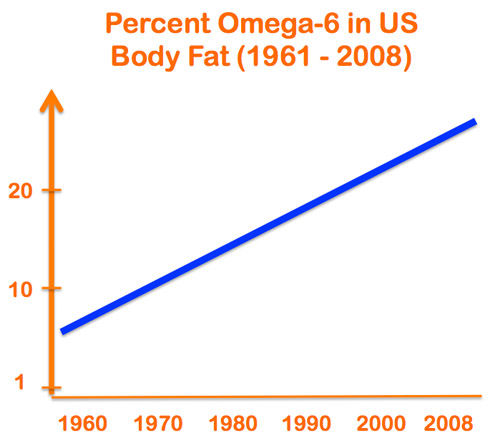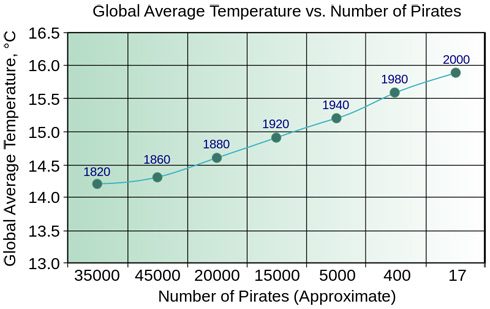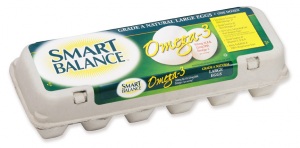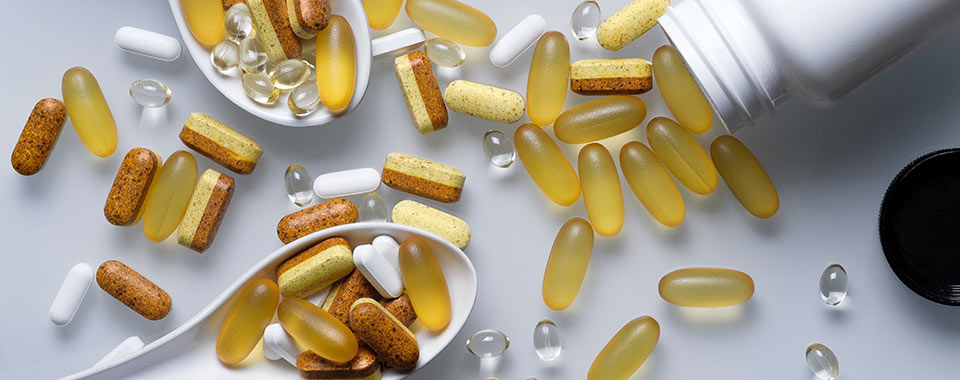7 reasons why recent news on fish oil has been negative
Lately, there’s been nothing but bad news about fish oil.
At last check, there were over 22,000 separate published studies on fish oil, most of it published in the last decade.
If there is such an explosive increase in scientific proof in support of fish oil’s benefits, then what gives?
Here are a few reasons reasons why:
1. Fear sells. Information doesn’t.
Survival is a very primal human instinct. And fear relates to our survival. TV producers aren’t trying to scare you. They’re just doing what works.
If CNN’s top health report was ‘Yet another study validates EPA Omega-3’s effect on health,’ you’d switch to the Kardashian Channel. That’s what sells. Not judging. Here are some cat videos.
Heck, even science-savvy Ira Flatow on NPR’s Science Friday, seemingly sat there filing his nails allowing scaremongering to go unquestioned.
Just last week, we got what may possibly be the best news on fish oil in a long time – a review of 70 studies showed that fish oil supports healthy blood pressure*. A brilliant piece of science commissioned by the equally brilliant people at GOED. The cricket-chirping silence from the media was noted by the savvier-than-Flatow Stephen Daniells in this piece.
*These statements have not been evaluated by the Food and Drug Administration. This product is not intended to diagnose, treat, cure, or prevent any disease. Individual results may vary. Clinical research suggests that 2000-3000 mg Omega-3 per day when used as part of healthy diet and exercise may help maintain healthy blood pressure.
2. The cocktail effect
Ever try speaking softly in a crowded sports bar? It doesn’t work. Similar situation with heart meds and Omega-3 studies.
Patients in many fish oil studies are also taking mega-cocktails of several different powerful cardiovascular drugs. This is called combination therapy, a throw-everything-at-the-wall approach.
Back in the 80s and 90s, when virtually every study on fish oil was positive, people weren’t exposed to aggressive background medical treatment. Back then, many of these drugs weren’t even around. So, in a polypill world, it is almost impossible for fish oil or even a new, powerful stand-alone drug to provide enough benefit to rise above the noise.
Six recent trials showed little or no benefit to taking Omega-3 and all of them had very high background medical treatment with statins, antihypertensives and anticoagulants.
This is a huge problem but it does not mean that Omega-3 is ineffective.
3. People are aware of (and consuming) Omega-3
People have begun eating Omega-3 fortified foods.
There is Omega-3 in milk, eggs, orange juice, bread, yogurt and anything else that marketers can sprinkle a little Omega-3 into.
If you’re already getting Omega-3 from several sources in your diet, it becomes difficult to show benefit with a little more added Omega-3. ‘High background fish and fish oil supplement‘ use among study participants has been noted by several researchers.
William Harris, a professor of medicine at the Sanford School of Medicine at the University of South Dakota says that as more people consume fish and other products with omega-3 in it, the harder it is to show a benefit because there is no true placebo group.
4. High Omega-6 consumption
Omega-6 and Omega-3 fats have opposing ying-yang effects in your body.
Our natural (and ideal) ratio between these two groups of fatty acids is roughly 1 to 1. But even 2 or 3 times as much Omega-6 is fine. But modern diets are as much as 15 or 20 times in favor of Omega-6.
This extreme imbalance may be part of the reason why we need more Omega-3 ying to balance the Omega-6 yang.
Most Omega-3 benefits often trace back to moderating or undoing the damage from excess Omega-6*. And Omega-6 is a precursor for several potentially unhealthy compounds. The health effects of low or moderate levels of Omega-3 are likely to be drowned out due to the unnaturally high levels of Omega-6 in our diet…again, not unlike speaking softly in a loud sports bar.*

Given that our Omega-6 consumption has dramatically increased since the 1970s, isn’t it logical to assume that you’d need higher amount of Omega-3 to notice a health benefit?
There is proof that reducing Omega-6 makes Omega-3 more bio-available.*
Some researchers have started accounting for high dietary Omega-6 intake. But most have not.
5. Omega-3 Dosage is too low
If you want to show an effect, you may need to take higher doses. Simple concept.
But not all studies use effective doses. It does not mean Omega-3 is a dud. It just means that at that low dosage, the study showed no statistical benefit.
Dr. Barry Sears of Zone Diet fame has beat this point to death. Or has he?
6. Global warming kills pirates – confusing correlation and causation
This is a pet peeve. I could rant for days.
Correlation means two things are somehow associated but one does not necessarily cause the other. Like ice cream causes drowning. Or global warming kills pirates.

This should be a litmus test for all graduate students defending their thesis: can you kill pirates by cranking up your thermostat? (Instead, they asked me about standard deviation and secondary differential equations…pshaw! Thanks, Dr. Cornell!)
Last year’s charmingly flawed ‘fish oil supplements cause prostate cancer‘ study confused correlation with causation.
Theodore Brasky, the lead author of the study, I’m told, keeps his office at a toasty 110 degrees. When faced with a room full of scientists, he offered a plausible explanation that supplement users are more likely to visit their doctors and therefore more likely to be diagnosed earlier with prostate cancer. That doesn’t excuse the fact that his original headline-grabbing study didn’t include fish oil supplementation.
At the same conference, when Dr. Dominik Alexander, an epidemiologist, reviewed the same data from the same prostate cancer study. He described prostate cancer risk from fish oil consumption as ‘Not much. No increased risk. No decreased risk. Nothing much is going on. A non-statistically-significant finding.‘
Not the message we heard on TV last year, which by the way, caused 12 million people to stop taking fish oil supplements.
7. Scientific sloppiness
Lots of ways to screw up scientific research, but here are some very common ones seen in Omega-3 studies:
- Treatment duration is too short. This is often the case with studies that look at DHA’s effect on brain health.
- Poorly defined end points. In earlier Omega-3 studies, death of patient was often the study end point. In all of the recent recent studies, ‘non-fatal events‘ became the study end point due to, well, people not dying. Some called it quits early because people were not dying as expected. Those stubborn patients…how dare they!
- Too few subjects. This causes ‘insufficient power’ for the number crunching to yield results. This does not mean that fish oil did not work, but rather a failure to detect a benefit due to too few people/subjects.
- How Omega-3 is measured. Omega-3 levels is plasma tends to rise and fall depending on your last meal. The level of Omega-3 incorporated into your red blood cells membrane may be more reliable. The least reliable is asking people what they ate the previous day (food frequency questionnaires) and extrapolating that into a conclusion.
- Lousy placebo. What makes a good placebo against fish oil? Vegetable oil? Margarine? Olive oil? Nope, nope and nope. Yet, studies use these regularly.
- Confusing primary and secondary prevention. I’ll excuse the media for not getting this, but not scientists.
- Primary prevention is preventing a disease before you get it.
- Secondary is treating it after you get the disease. Example: may be fish oil or eating fish won’t do a damn thing for Alzheimer’s after you get it…but, may be, watching you diet and eating fish in your youth and middle age helps. You’d need a 50-year study to prove this (see point 1).
Here is a link to A Rough Guide to Spotting Bad Science.
Omega-3 is not magic. It is entirely possible that even massive amounts of Omega-3 will not reverse advanced Alzheimer’s. We just don’t know. But I do know that giving fish oil to Alzheimer’s patients for a few months and expressing outrage at the lack of results isn’t accomplishing much.
For a more technical review of some of these points, see Dr. Harry Rice’s lecture here.
A special case of sloppiness…
This recent study in the Annals of Internal Medicine (a prestigious journal), despite its Cambridge/Harvard authors, simply screwed up. But the authors issued a reluctant correction, possibly due to pressure from other scientists.
The original version of the study (that the media frenzied on) said that fish oil did not work. An ‘Oops! Never-mind-us-but-fish-oil-does-work’ version came a couple of weeks later. The correction, of course, was ignored by the press.
Ignoring the obvious
Omega-3 EPA and DHA are essential nutrients. Let’s not forget that.
It doesn’t matter what the TV says. You still need Omega-3 to stay alive. And hopefully you get it from fresh fish rather than supplements or plants.
*Individual results may vary. These statements have not been evaluated by the Food and Drug Administration.




Hello Can you please tell me if I eat alot of fruits and vegetables that contain Soluble Fiber with my fish oil, will the fiber contained in fruits/veg such as Prunes keep the fish oil from Absorbing? Because foods like Prunes “soak up” stuff in the digestive track, will that soak up my fish oil too, because it has so much Soluble Fiber in it?
I just dont want to take the fish oil with foods that will keep it from absorbing?!
Please share your knowledge on this matter. Thank you
Hi Amanda – eating fruits and veggies will not affect Omega-3 absorption. Exceptions are fatty fruits/veggies…like avocados, olives and coconut. These, if taken together with fish oil supplements, will increase Omega-3 absorption a little. The fiber wont affect it.
The only thing I know that will reduce fish oil absorption is the OTC weight loss pill called Alli.
Hey Vin,
I’m a little concerned when reading this guy’s review on amazon.
http://www.amazon.com/review/RH7ZWVOS3WR5J/ref=cm_cr_pr_viewpnt#RH7ZWVOS3WR5J
Normally I wouldn’t worry, but if you click on his username, you’ll notice that he did purchase many fish oil products (verified purchase) and he seems to conduct some research to back up his claims. What’s your response to this? Thanks!
Hi Goldberg – thank you for your question. We are very familiar with this reviewer.
Does OmegaVia EPA 500 have the same active ingredient as the prescription drug, Vascepa? Yes. This is permitted by FDA – it is neither illegal nor a regulatory loophole. The FDA is aware of this product and has audited the facility in which it is made. The FDA has reviewed our product label without any comments.
However, there are a couple of valid points in the review worth discussing:
1. OmegaVia EPA 500 is made with ethyl ester form of fish oil. It is. According to the reviewer, this is not fish oil and therefore misbranded. This is an opinion and one that we’re comfortable with. The oil in this product is made from Sardines and Anchovies. Until the FDA issues a new definition of fish oil, we will continue to use the terms fish oil/Omega-3/ethyl ester interchangeably.
According to the reviewer, only unconcentrated, unpurified crude oil squeezed out of fish may be called fish oil. We accept this opinion, but we certainly do not want to consume or sell you crude fish oil because it contains very little Omega-3 and has higher amounts of environmental pollutants. The concentration and purification process can only occur in the ethyl ester form. It is basic chemistry. This argument reminds of an ugly incident I witnessed between two poets who were arguing the differences between a prose poem and structured poem. It was a vicious event but no one else cared.
Back to fish oil – there is fear-mongering in fish oil sales, if you haven’t noticed. Most of the fear whipped up about ethyl ester fish oil is done by people with an agenda or those selling fish oil. I’ve written about it here:
http://www.omegavia.com/ee-fish-oil-vs-tg-fish-oil/
http://www.omegavia.com/ee-fish-oil-vs-tg-fish-oil-2/
http://www.omegavia.com/fish-oil-ethyl-ester-vs-triglyceride-revisited/
2. Enteric coating. This prevents fishy burping, the #1 complaint about fish oil. It prevents burping by keeping the pill intact in the stomach and dissolving in the small intestines. Whether this increases or decreases absorption is an ongoing debate among people with an agenda or those selling fish oil. People who do not like burping don’t seem to complain. All our fish oil pills are enteric coated. Also, virtually all Omega-3 absorption occurs in the intestines, so not having the pill dissolve in the stomach is not an issue. More here:
https://www.omegavia.com/enteric-coated-fish-oil/
http://www.omegavia.com/why-enteric-coating-on-fish-oil-pills-fail/
All our products run a regulatory and legal gauntlet before it is introduced to the public. We proudly disclose that the oil is enteric coated and in an ethyl ester form on our label artwork and on our website and on Amazon.com.
While our legal department may find some of the comments in the review to be misrepresentations or libelous, I find it to be a ‘teachable moment.’
If you have any other questions, please feel free to ask.
Vin
Thanks for the information, Vin! This is why I love Omegavia. It’s not just random speculations but you guys really do a lot of research on your products, and I’m glad to be a customer!
Hi — I am interested in this product and can see that the omega 3 values are high. Is it true though that all omega 3 fish oil do contain normally some amount of omega 6 and 9 or is this all removed in your product
Hi Mark – regular fish oil with about 25-30% Omega-3 will contain some naturally-occurring Omega-6, Omega-9, saturated fats and some cholesterol etc. Once you concentrate the Omega-3 to levels higher than, say 60 or 70%, you will see less of these non-Omega-3 substances. OmegaVia at about 90% purity, will have virtually none of these non-Omega-3 fats.
Have read that taking too much fish oil can increase oxidative stress in the body. If this is true, what might be the net effect of higher oxidative stress combined with omega 3 supplementation be regarding disease prevention in the body? Also, have you ever heard of mild liver enzyme elevations while on high quality fish oil (specifically alt, ast, and ggt)?
Hi Alan – yes, taking too much fish oil can increase oxidative stress. 1 to 2 grams of Omega-3 ought to be plenty for most people and is not considered ‘too much.’ But most people consume SO MUCH Omega-6 (six!) fats in their diets that their need for Omega-3 becomes artificially raised. These people won’t see benefits from fish oil unless they take 3 to 4 grams of Omega-3 per day. Most of the oxidative damage comes from high-Omega-6 industrial seed oil used in food preparation. Given the ratio of Omega-6 to 3 in American diet, most of the oxidative stress burden fall on Omega-6 and not Omega-3. If you want to reduce oxidative stress from oils, Omega-6 is where you start. Once you’ve lowered your Omega-6 consumption, your need for Omega-3 will go down and at that point, you take less Omega-3. I have more on this here:
http://www.omegavia.com/omega-6-omega-3-and-oxidized-ldl/
http://www.omegavia.com/oxidized-ldl-cholesterol-lard-less-lipitor/
As far as liver enzymes, there have been some reports of elevated liver enzymes with high doses of fish oil. But no one is clear on how much of a direct effect fish oil has on liver enzymes. It may be correlational and not causal because several things cause an increase in ALT – junk food, sugar, etc. and any lifestyle that produces a need for prescriptive fish oil is also likely to produce increased liver enzymes. SO much so that ALT is a good proxy for fatty liver disease. My points is: it’s possible that fish oil increases liver enzymes but chances are that it’s the other stuff.
If you can reduce/eliminate sugar, refined grains, processed foods, juices, sodas, wheat and seed oils, your need for Omega-3 supplement will go away and you won’t have to worry about any of this stuff. Assuming you eat some seafood regularly, of course.
Hi Vin!
What do you think of Dr. Sears’ fish oil? I used it years ago and found them great, but they are quite a bit expensive. Just wondering if you feel they’re worth the price.
Thanks!
Devon
Hi Devon – I like Dr. Sears fish oil a lot. Good quality, third-party tested by IFOS and the product will always contain what they say it will. But, yes, they are very expensive. There are a few other products equal in quality and most are better values: http://www.omegavia.com/favorite-fish-oil-brands-part-2/
I just bought Omega Q Plus . How does it compare with Omegavia?
Hi Darlene – Omega Q Plus is a good quality product but it has just 250 mg of Omega-3 per pill. OmegaVia has 1105 mg Omega-3 per pill. Both have 60 pills per bottle. So there is almost 4.5 times as much Omega-3 in OmegaVia for a few dollars less. But Omega Q Plus has CoQ10 and L-Carnitine. At 25 mg per pill, there is not enough CoQ10 to make much of a difference. You need about 4 times as much. You’re better off buying the three ingredients separately. Instead of Carnitine, I’d rather you take Magnesium, Vitamin K2 and may be Curcumin.
Wow, this is great info!
Hi Vin, is there a liquid Omegavia for little babies of 7 months and above? If there isn’t kindly let me know of another brand.
Hi Kelvin – we don’t have a liquid OmegaVia yet. I suggest you try something made by Nordic Naturals.
uh oh…
http://well.blogs.nytimes.com/2015/03/30/fish-oil-claims-not-supported-by-research/?hpw&rref=health&action=click&pgtype=Homepage&module=well-region®ion=bottom-well&WT.nav=bottom-well
Yup – read that this morning. 🙂
Hi David – do you have a reference/link to the study?
Our EPA 500 now has its enteric coating sprayed onto the exterior of the capsule. It used to be built into the gelatin. The new technique is more effective in preventing fishy burps in those who are susceptible to it. Otherwise, no changes.
Vin, hi! Could you, please, answer a couple of questions regarding Omega-3:
There are some authors in the Internet saying that:
a) there is no scientific proof of the Omega-3 benefits (they quote several meta-studies)
b) it can be harmful if taken on a daily basis because it’s prone to oxidation
1) I understand that there are lots studies with falsely negative results because of scientific sloppiness, you’ve mentioned above, but there should be lot’s of studies, proving that Omega-3 works – is there a list of such articles somewhere?
2) I’m taking 1800 mg of EPA+DHA every day and recently I’ve done a test which showed that Omega-3 index in erythrocyte membranes is 6% (whereas the optimal is 8%). Should I increase the intake of Omega-3 acids to aim for 8%? Wouldn’t it be too much from the oxidation point of view?
Hi Tim – you can find support for all contrary opinions on the internet. This is nothing new. It’s the nature of the internet. The points I make in the article above still holds. As of now, there are ~45,000 published studies on Omega-3. 4000 of those studies were human clinical trials.
You can find more information here: https://goedomega3.com/white-papers. PubMed is a great place to look for Omega-3 articles too but it will take you many years to read the content there. 🙂 And here: https://alwaysomega3s.com
Omega-3 Index of 6% is not bad. It’s better than most people. An Omega-3 Index of 6% is normal for 1800 mg per day. To me, this suggests your have less than 300 mg Omega-3/day in your diet. My Omega-3 Index drops to below 3% if I go 2 to 3 months without fish or Omega-3 supplements. But, yes, based on studies published by Dr William Harris (https://www.faresinst.org and https://omegaquant.com) suggests you’d be better protected at 8%. You could get your extra Omega-3 from fish or supplements. Try 2500 mg daily for 2-3 months and see if you reach 8%.
If you start with low-TOTOX Omega-3 supplements, you should be fine. If you are still concerned about oxidative load, the first place to start is reduction of your Omega-6 intake and add then some Tocoherols, alpha-lipoic acid, and other dietary antioxidants to your routine. Your Omega-3 index result probably gave you your Omega-6 to 3 ratio as well as AA to EPA ratio…use these are guides to lower your Omega-6 intake from seed oils.
Thank you, Vin!